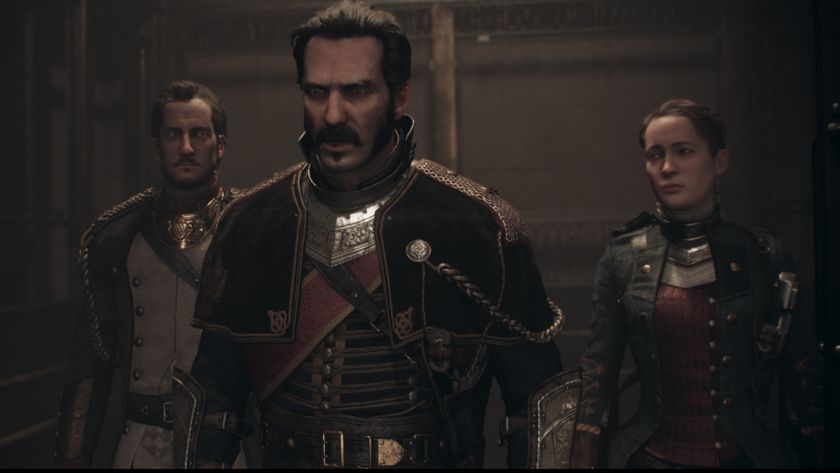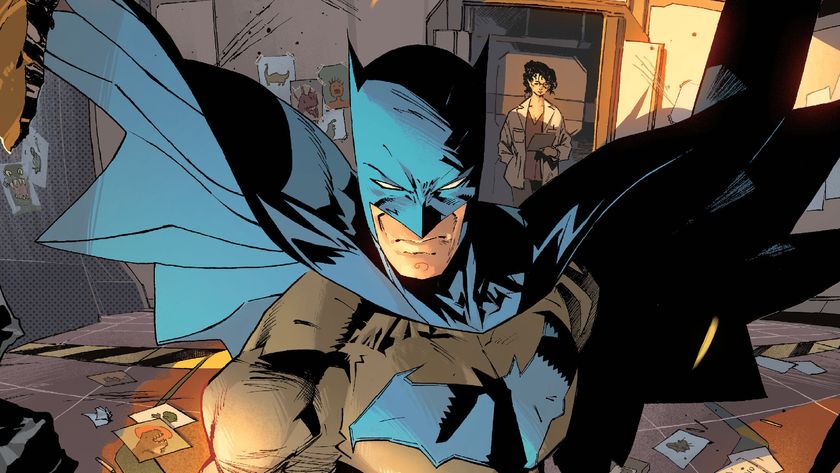Deus Ex: Human Revolution director apologizes for boss fights
Francois Lapikas offers insights into what went wrong (and right) with last year's surprise success
Bringing back a classic series with a rabid fan following is never an easy task, so for as much as it got right, the team behind Deus Ex: Human Revolution was bound to do something that would rub players the wrong way. Speaking at a panel at the 2012 Game Developers Conference, DX:HR's gameplay director, Francois Lapikas, acknowledged that that "something" was the game's boss fights. Criticized for forcing players into gun battles (where most other conflicts in the game could also be resolved through stealth or conversation), the bosses were added late in the design process, Lapikas said, and were envisioned more as a way to switch up the game's pacing than as a test of the player's accumulated skills. Also, while the team had detailed "direction sheets" that carefully laid out nearly every other aspect of the game, Lapikas said, they didn't have them for the bosses.
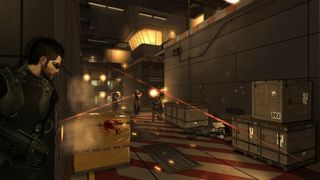
"They were a big part of the game, and we should have put more work behind them," Lapikas said. "So, sorry about that."
While the apology was something of a surprise, the rest of the insights Lapikas offered were markedly more positive: "Everything went so right for such a big project," he said, and it quickly became clear that a lot of work had gone into making sure that happened. The team realized that it was taking on something huge from the outset, and so a big part of the early design process involved looking into fans' forum discussions, as well as reviews of Deus Ex and its sequels, as a way to find out what, specifically, people liked or didn't like about them. The team pored over the design documents for the ill-remembered Invisible War and the never-produced sequel, Deus Ex: Insurrection. They also took a careful look at what the beloved first game did right, and forced themselves to be honest about its faults – the lack of "feedback" from stealth, for example, or the intimidation factor and potential aimlessness that come with packing a game so full of open-ended options.
In addition to insights into how the developers took pains to get Deus Ex right (which paid off, if our 10/10 review is anything to go by), Lapikas also shared a few things that ended up on the cutting-room floor. One of these was the original version of Human Revolution's hacking minigame, which in its original iteration was envisioned as being convincingly close to the real thing. Rather than navigating a visual map (as in the final version), players would first select a port through which to access a computer network (which might have a varying lifespan) and then assign CPU cycles to three different programs, each of which served a different purpose and could yield different results. The aim of the game was to find holes while avoiding detection, and so players would also be able to switch to a view of their surroundings, taking cover if guards got too close. Lapikas now acknowledges that the minigame would have been "way too complicated," but he was nonetheless heavily invested in it at the time – and when one of the game's artists came up with the visual, map-like minigame as an alternative approach to it, Lapikas had to be "talked off a ledge" before he realized that it actually worked well as a way to simplify (and make fun) the minigame he'd envisioned.
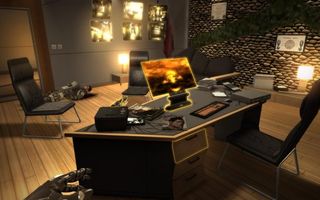
Another interesting consideration was the energy to power protagonist Adam Jensen's cybernetic augmentations, which had been seen as one of the major flaws in Deus Ex, because there was seemingly never enough of it. At first, the solution seemed simple: eliminate it as a consideration, and just give players unlimited energy. It quickly became apparent, however, that giving players unlimited energy also meant giving them limitless power, as playtesters simply stealthed their way through every encounter, knocking guards down like dominoes. Lapikas said that this caused the team to realize that Deus Ex is really a game about scarcity of resources; if players are simply given everything, they don't have to think their actions through – and thinking your actions through is kind of the point of Deus Ex.
There were some concessions to player convenience, though; originally, getting a new augmentation for Jensen meant you'd have to visit a LIMB clinic and get it installed. That didn't work so well for players, though, as it forced them to anticipate their needs for a given mission well in advance (you might be committed to stealth, for example, but you might not see how a strength modification would be helpful to that until you find a huge crate blocking a vent). So the on-the-fly Praxis system (which enables players to add modifications on their own, so long as they've got enough "Praxis Points" to spend on them) was implemented instead. Unfortunately for the designers, this also meant that it was now possible for Jensen to access the CASIE mod (which monitors characters during conversation and adds new dialogue options) early, which in turn broke an early, crucial "conversation boss fight" that wasn't designed for use with CASIE. Balancing that first mission to ensure that players couldn't get CASIE, Lapikas said, was a huge challenge.
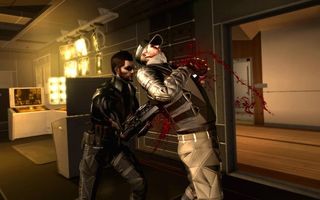
According to Lapikas, the game's success wasn't just because of its exhaustive direction sheets, but also because of the team's relatively democratic approach to design and the careful attention it paid to playtesters and fans. "We listened to people," Lapikas said. "Everybody had a say."
Sign up to the 12DOVE Newsletter
Weekly digests, tales from the communities you love, and more
Most Popular







